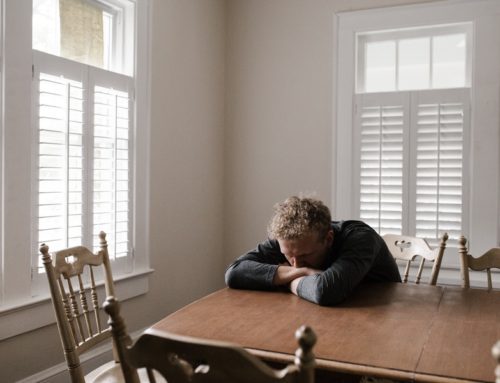If you’ve been feeling blue since COVID-19 hit the scene, you’re not alone. The pandemic has affected the mental health of millions of people across the world. The incidence of depression reported by Americans over 19 has tripled since the onset of the pandemic.[1] What’s even more disturbing is the 11 percent rise in the number of people who say they’ve strongly considered suicide.
If a friend or loved one were considering suicide, would you recognize the signs? They can be hard to identify and sometimes people seem to commit suicide out of the blue. However, there are some common warning signs of suicidal thinking (suicidal ideation).
Have a look at these:
- Statements about being better off dead, talking about suicide or talking about wanting to kill themselves
- An unusual or new interest in death or macabre topics
- Abrupt changes in behavior. This may include new behaviors that are atypical.
- Talking about being a burden to others
- Voicing feelings of failure or believing one’s self to be a failure
- Expressing feelings of hopelessness and helplessness, or feelings of futility
- A bleak outlook, pessimistic about the future
- Uncharacteristic risk-taking behavior
- Unusual use of alcohol or drugs. Note that people who are in recovery from addiction are at increased risk of suicide during and immediately after a relapse.
- Talking about having no reason to live
- Posting suicidal messages on social media
- Giving away possessions or putting one’s affairs in order
- Withdrawing from others, increased social isolation
- Abrupt calmness or happiness. Sometimes people will experience an improvement in their mood after deciding to kill themselves.
There is a trend on social media where people post a steady stream of sad or depressing news in order to garner attention, called sadfishing.[2] However, it’s far better to take any suicidal behavior at face value and make contact with the individual. When a person makes a threat to harm themselves, get help immediately.
Take action if you believe someone is in imminent danger of suicide.
- If you’re present, stay with the person
- Contact their family, friends or any other trusted person
- Ask if they have any means to hurt themselves. Remove anything they may use to harm themselves.
- Call 911 or call the National Suicide Prevention Hotline at 1-800-273-8255
Suicide is not in and of itself a mental illness, but many mental illnesses have an elevated risk of suicide, including depression and bipolar disorder.
Damaris Aragon, ARNP, BC provides a full spectrum of mental health care to people in Spokane, Washington, and surrounding areas. She focuses on providing personalized, compassionate care that adheres to current evidence-based standards. Reach out to Damaris through her contact page or calling 509-342-6592.
[1] https://www.cidrap.umn.edu/news-perspective/2020/09/depression-triples-us-adults-amid-covid-19-stressors
[2]
https://theconversation.com/sadfishing-frequently-sharing-deeply-emotional-posts-online-may-be-a-sign-of-a-deeper-psychological-issue-126292






